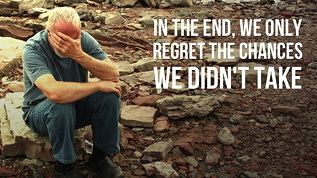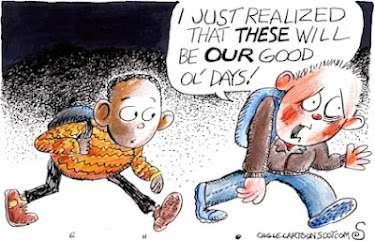“Life Lessons From a Psychiatrist Who’s Been
Listening to People’s Problems For Decades”
by Thomas Oppong
“How you approach life says a lot about who you are. As I get deeper into my late 30s I have learned to focus more on experiences that bring meaning and fulfilment to my life. I try to consistently pursue life goals that will make me and my closest relations happy; a trait that many individuals search for their entire lives. Nothing gives a person inner wholeness and peace like a distinct understanding of where they are going, how they can get there, and a sense of control over their actions.
Seneca once said, “Most powerful is he who has himself in his own power.” “No people can be truly happy if they do not feel that they are choosing the course of their own life,” states the World Happiness Report 2012. The report also found that having this freedom of choice is one of the six factors that explain why some people are happier than others.
In his best-selling first book, “Too Soon Old, Too Late Smart: Thirty True Things You Need to Know Now”, Dr Gordon Livingston, a psychiatrist who’s been listening to people’s problems for decades, revealed thirty bedrock truths about life, and how best to live it. In his capacity as a psychiatrist, Dr Livingston listened to people talk about their lives and the many ways people induced unhappiness on themselves. In his book, he brings his insight and wisdom to the subjects of happiness, fear and courage.
“Life’s two most important questions are “Why?” and “Why not?” The trick is knowing which one to ask.” Acquiring some understanding of why we do things is often a prerequisite to change. This is especially true when talking about repetitive patterns of behavior that do not serve us well. This is what Socrates meant when he said, “The unexamined life is not worth living.” That more of us do not take his advice is testimony to the hard work and potential embarrassment that self-examination implies.”
Most people operate on autopilot, doing the same things today that didn’t work yesterday. They rarely stop to measure the impact of their actions on themselves and others, and how those actions affect their total well-being. They are caught in a cycle. And once you get caught in the loop, it can be difficult to break free and do something meaningful. Past behavior is the most reliable predictor of future behavior.
If your daily actions and choices are making you unhappy, make a deliberate choice to change direction. No matter how bleak or desperate a situation may appear to look, you always have a choice. “People often come to me asking for medication. They are tired of their sad mood, fatigue, and loss of interest in things that previously gave them pleasure. ”…“Their days are routine: unsatisfying jobs, few friends, lots of boredom. They feel cut off from the pleasures enjoyed by others.
Here is what I tell them: The good news is that we have effective treatments for the symptoms of depression; the bad news is that medication will not make you happy. Happiness is not simply the absence of despair. It is an affirmative state in which our lives have both meaning and pleasure.” “In general we get, not what we deserve, but what we expect,” he says.
Most people know what is good for them, they know what will make them feel better. They don’t avoid meaningful life habits because of ignorance of their value, but because they are no longer “motivated” to do them, Dr Livingston found. They are waiting until they feel better. Frequently, it’s a long wait, he says. Life is too short to wait for a great day to invest in better life experiences.
Most unhappiness is self-induced, Dr Livingston found. “The three components of happiness are something to do, someone to love, and something to look forward to. Think about it. If we have useful work, sustaining relationships, and the promise of pleasure, it is hard to be unhappy. I use the term “work” to encompass any activity, paid or unpaid, that gives us a feeling of personal significance. If we have a compelling avocation that lends meaning to our lives, that is our work, ” says Dr Livingston.
Many experiences in life that bring happiness are in your control. The more choices you are able to exercise, and control, the happier you are likely to be. “Happiness is an inside job. Don’t assign anyone else that much power over your life,” says Mandy Hale. Many people wait for something to happen or someone to help them live their best lives. They expect others to make them happy. They think they have lost the ability to improve their lives.
The thing that characterizes those who struggle emotionally is that they have lost, or believe they have lost, their ability to choose those behaviors that will make them happy, says Dr Livingston. You are responsible for your own life experiences, whether you are seeking a meaningful life or a happy life. If you expect others to make you happy, you will always be disappointed.
You can consistently choose actions that could become everyday habits. It takes time, but it’s an investment that will be worth your while. “Virtually all the happiness-producing processes in our lives take time, usually a long time: Learning new things, changing old behaviors, building new relationships, raising children. This is why patience and determination are among life’s primary virtues,”
Most people are stuck in life because of fear. Fear of everything outside their safe zones. Your mind has a way of rising to the occasion. Challenge it, and it will reward you. Your determination to overcome fear and discouragement constitutes the only effective antidote to that feeling on unhappiness you don’t want. Dr Livingston explains. “The most secure prisons are those we construct for ourselves. I frequently ask people who are risk-averse, “What is the biggest chance you have ever taken?” People begin to realize what “safe” lives they have chosen to lead.”
“Everything we are afraid to try, all our unfulfilled dreams, constitute a limitation on what we are and could become. Usually it is fear and its close cousin, anxiety, that keep us from doing those things that would make us happy. So much of our lives consists of broken promises to ourselves. The things we long to do — educate ourselves, become successful in our work, fall in love — are goals shared by all. Nor are the means to achieve these things obscure. And yet we often do not do what is necessary to become the people we want to be.”
As you increasingly install experiences of acceptance, gratitude, accomplishment, and feeling that there’s a fullness in your life rather than an emptiness or a scarcity, you will be able to deal with the issues of life better.
Closing thoughts: Dr Livingston’s words feel true and profound. The real secret to a happy life is selective attention, he says. If you choose to focus your awareness and energy on things and people that bring you pleasure and satisfaction, you have a very good chance of being happy in a world full of unhappiness, uncertainty, and fear."














.jpeg)







